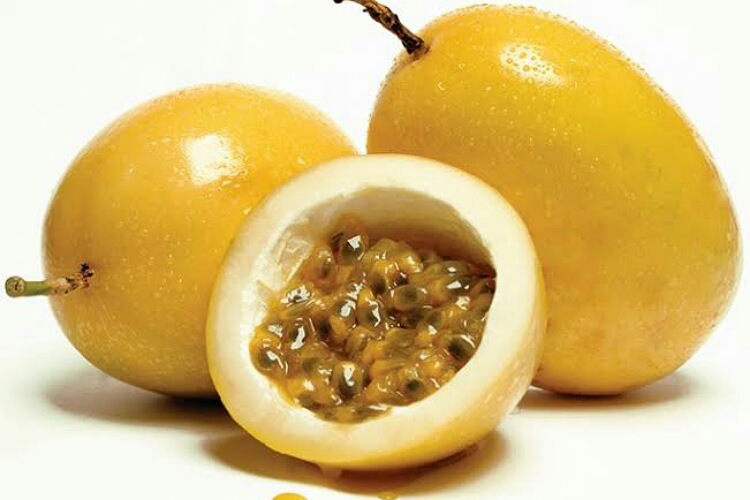Passion fruit is a tropical fruit commonly grown in South America untried such as Brazil and Argentina.
Health-conscious people are going for it and thus popularizing it. What are the nutritive values and benefits of this fruit? Let’s find out here.
Passion fruit
The fruit passion fruit is from the tropics and subtropics. It is small in size (with width of 1.5 to 3 inches) but highly nutritious and delicious.
Its outer skin is very tough. While the center is juicy, pulpy, and sweet filled with multiple tiny seeds. It comes in different colors; red, purple, yellow, and green. The purple and yellow varieties are most common.

The fruit is so named because it develops from one of the varieties of passion flower. The fruit came to Europe in 1553.
Nutritive values of the fruit
The passion fruit is caloric rich. 100 g of the fruit provides 97 Kcals. 23.4 g is carbohydrates, and 2.2 g are proteins. Fat is in small amounts; just 0.7 g in 100 g of the fruit. The fruit is rich in vitamins and minerals.
There is vitamin A, riboflavin, vitamin B6, niacin, folate, choline and vitamin C and K. It provides 36% of the daily recommended amount of vitamin C.
The fruit also is loaded with iron and calcium. Other minerals found in it are magnesium, phosphorus, sodium, potassium, and zinc.
Additionally, there is ample amounts of water as well as fiber in it. Vitamin C aids absorption of iron into the body.

The antioxidants content including carotenoid and polyphenols are present in this fruit. The polyphenol content is highest amongst the other tropical fruits such as bananas, pineapples, and lychee.
Health benefits of the fruit
Passion fruit has lots of antioxidants. This protects the effect on the body of the free radicals. Chronic inflammation is lessened. Hence heart diseases and atherosclerosis brought under control and prevented.
It boosts the immune system and is good for the skin. The fruit also delays aging. Its vitamin A content preserves and improves eyesight.
Passion fruit consumption on a regular basis can lower risk of cancers of colon and breast. It can improve insulin sensitivity especially in obese men and thus help in control of diabetes mellitus type 2.
The fiber keeps the gut healthy and prevents constipation. It smoothens the blood sugar spikes following a meal. Hence it improves glycemia.
Fiber rich diets also indirectly lower incidence heart ailments, diabetes and obesity. One study also revealed its usefulness in asthma control. Another study talked about its benefits in knee osteoarthritis.

Allergy to passion fruit though rare can occur. It is common in people with latex allergy.
The purple fruit has cyanogenic glycosides that can form cyanides in the body. Hence this fruit consumption should be done in moderation.
Read here, Cloud kitchens: Everything you need to know about this new trend of food industry!
The fruit can be eaten raw, in juice form, as toppings on desserts or added to salad. One can mix it with yoghurt for that great and unique flavor.
